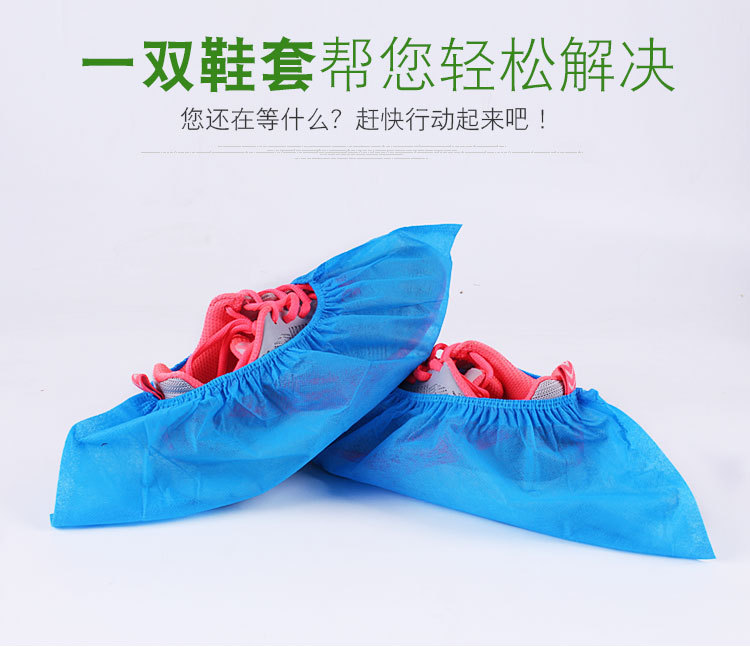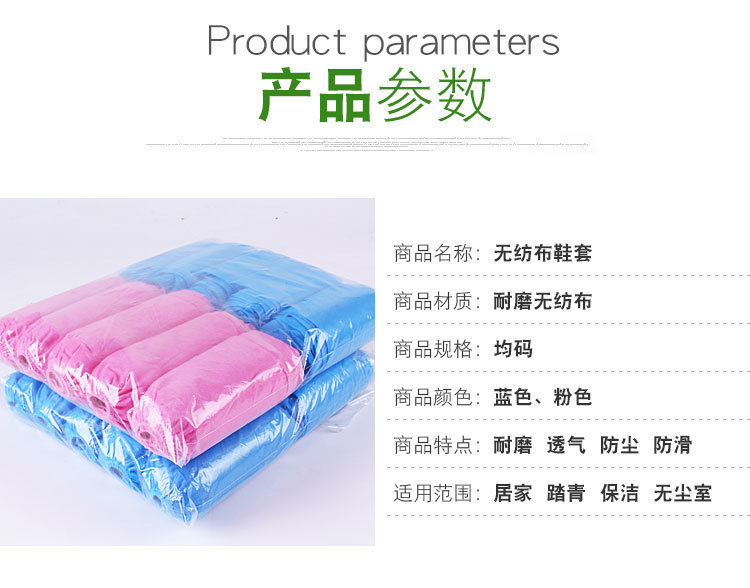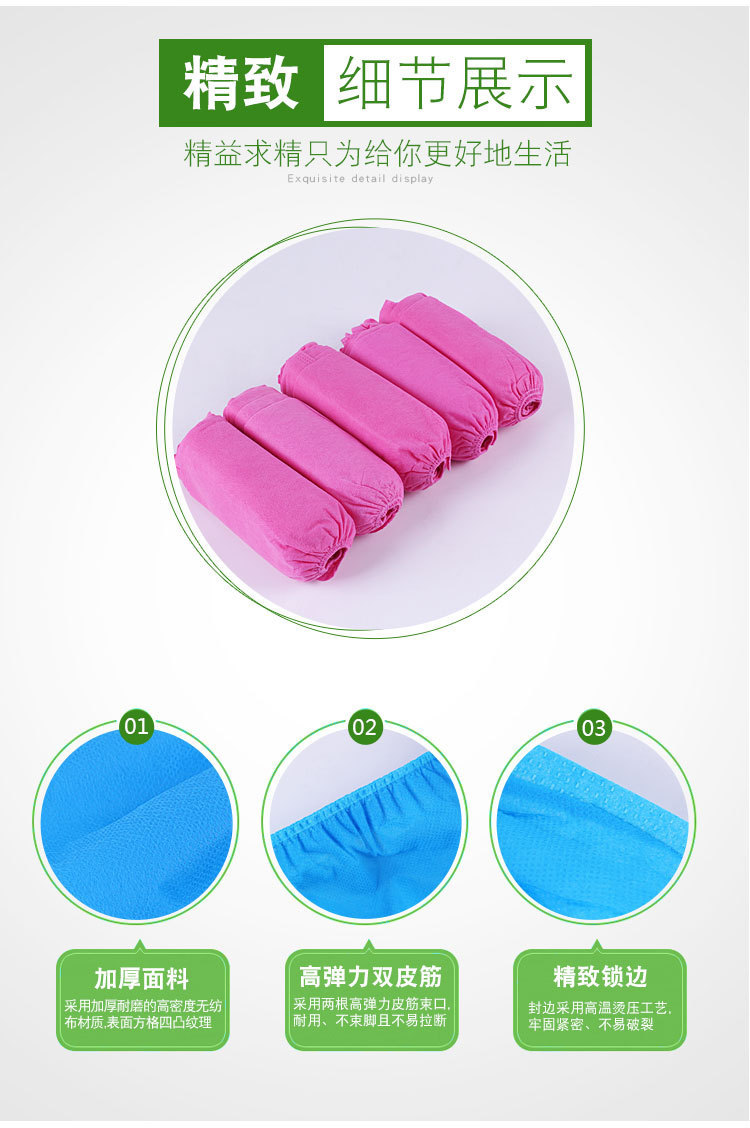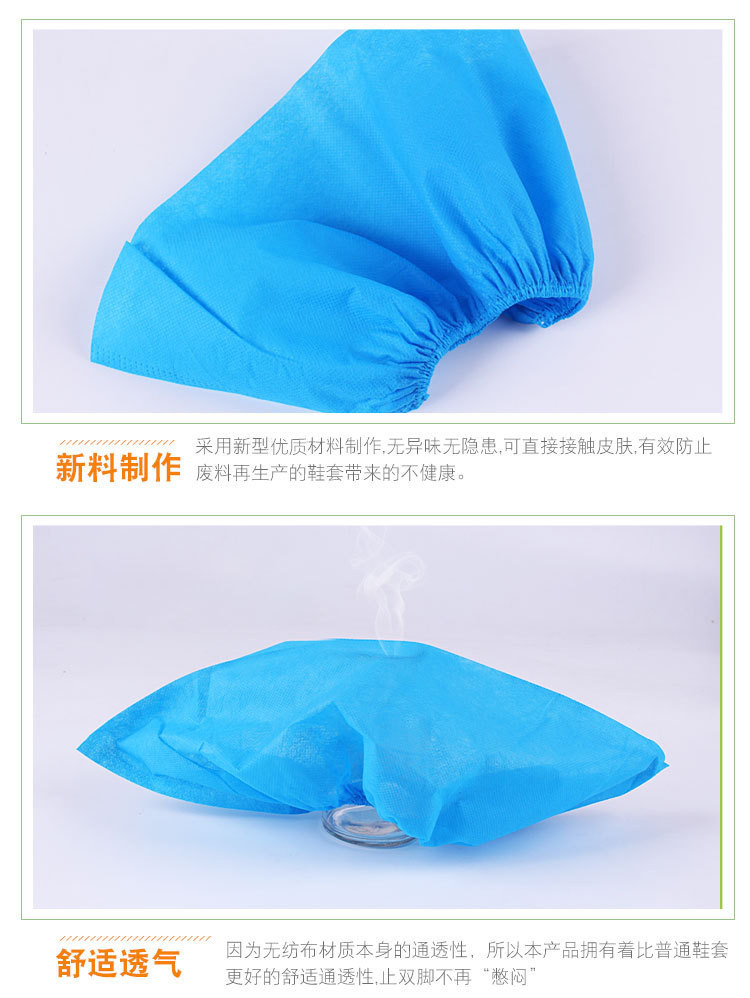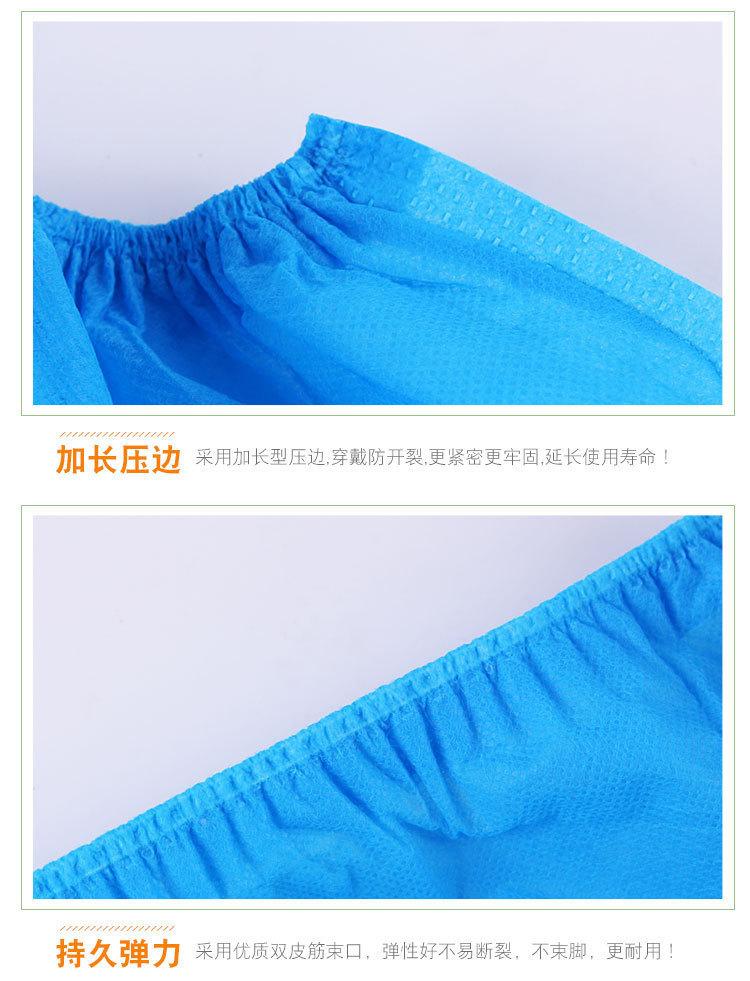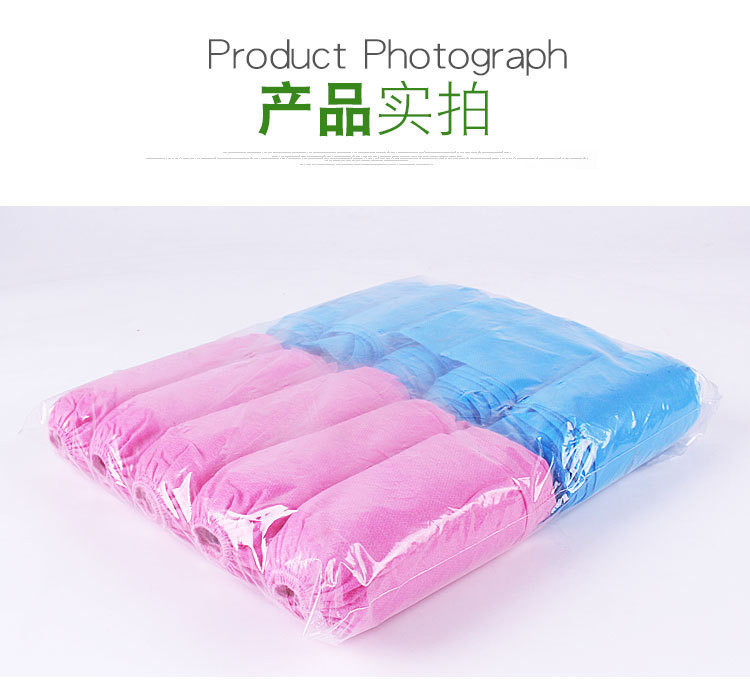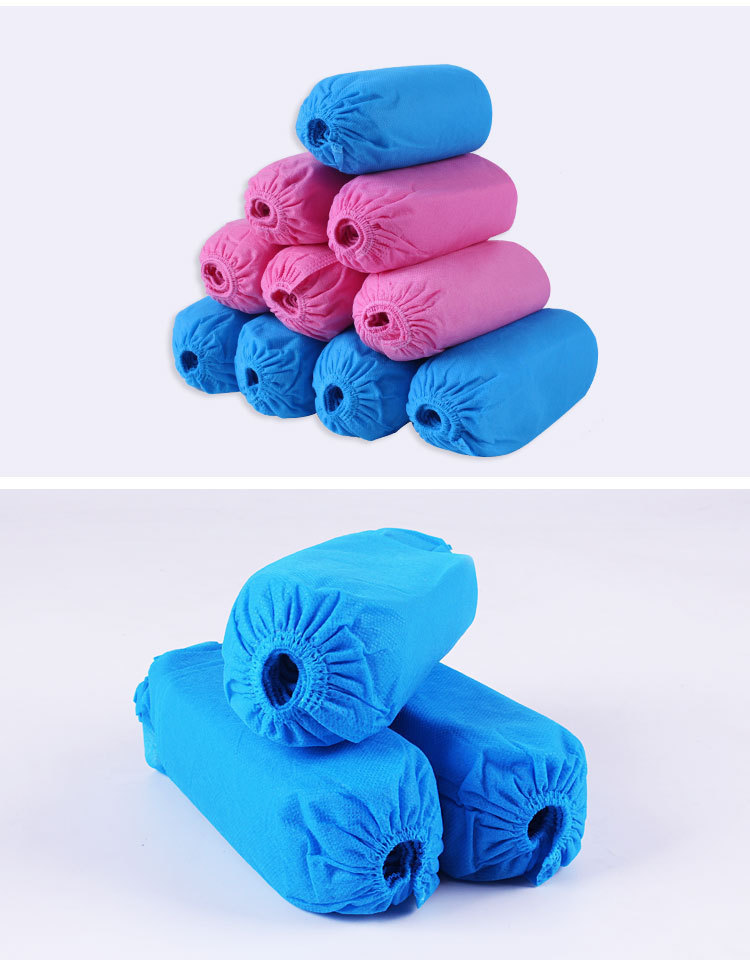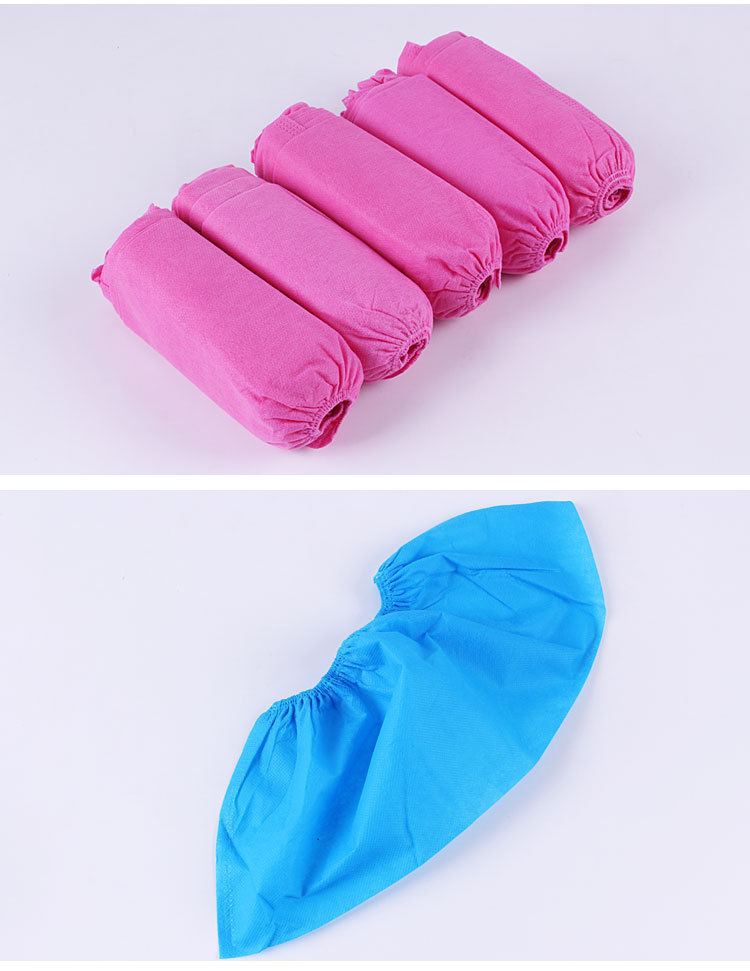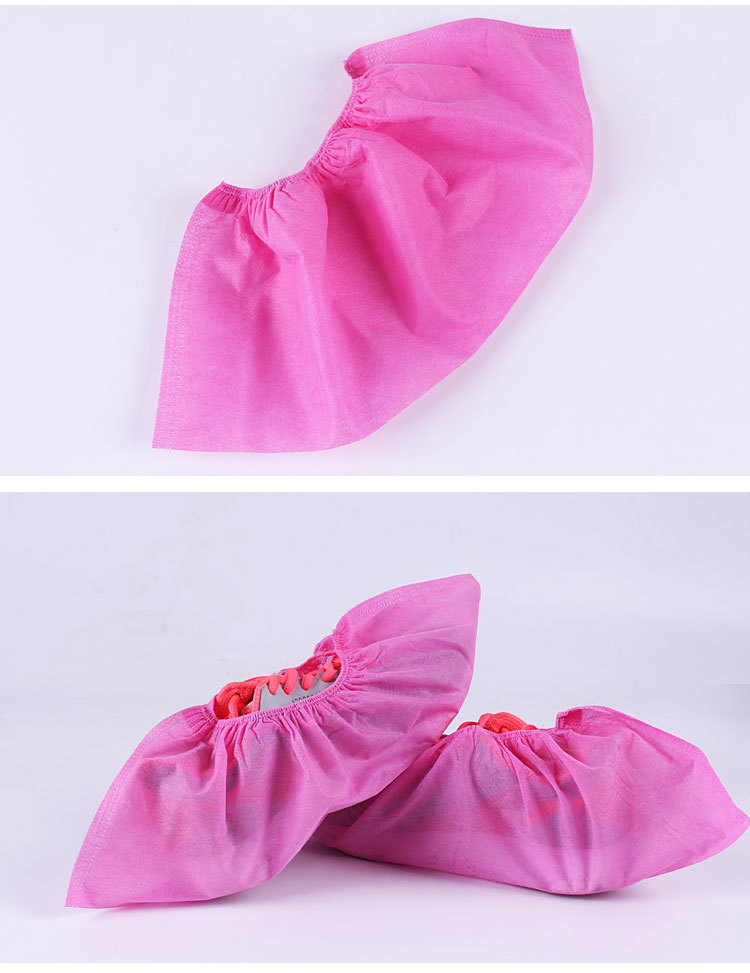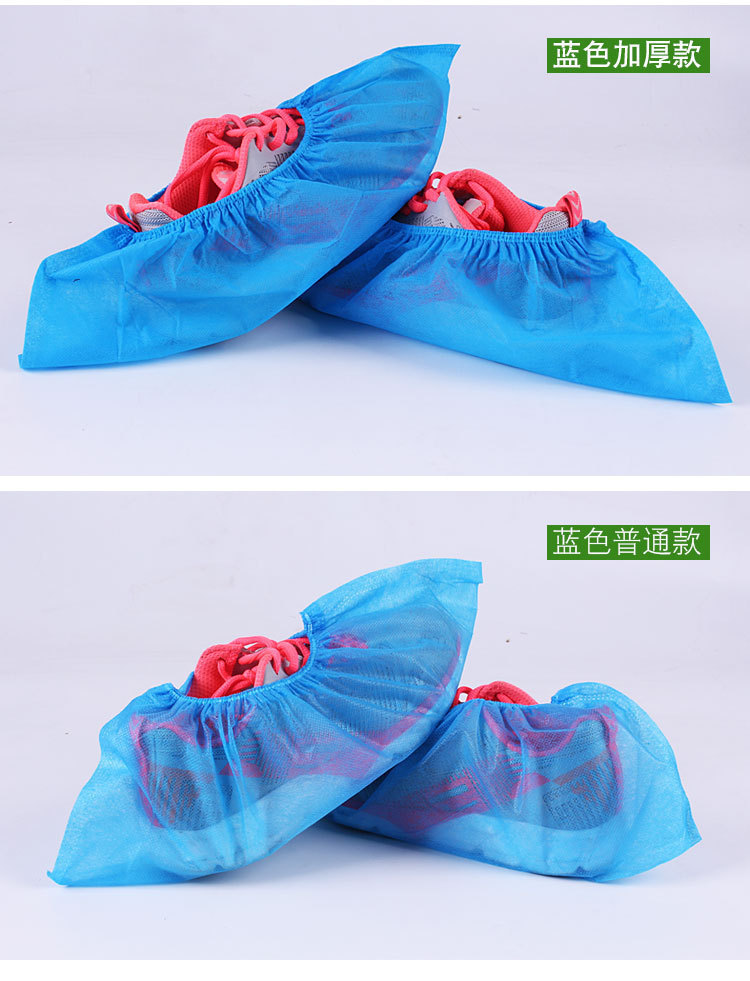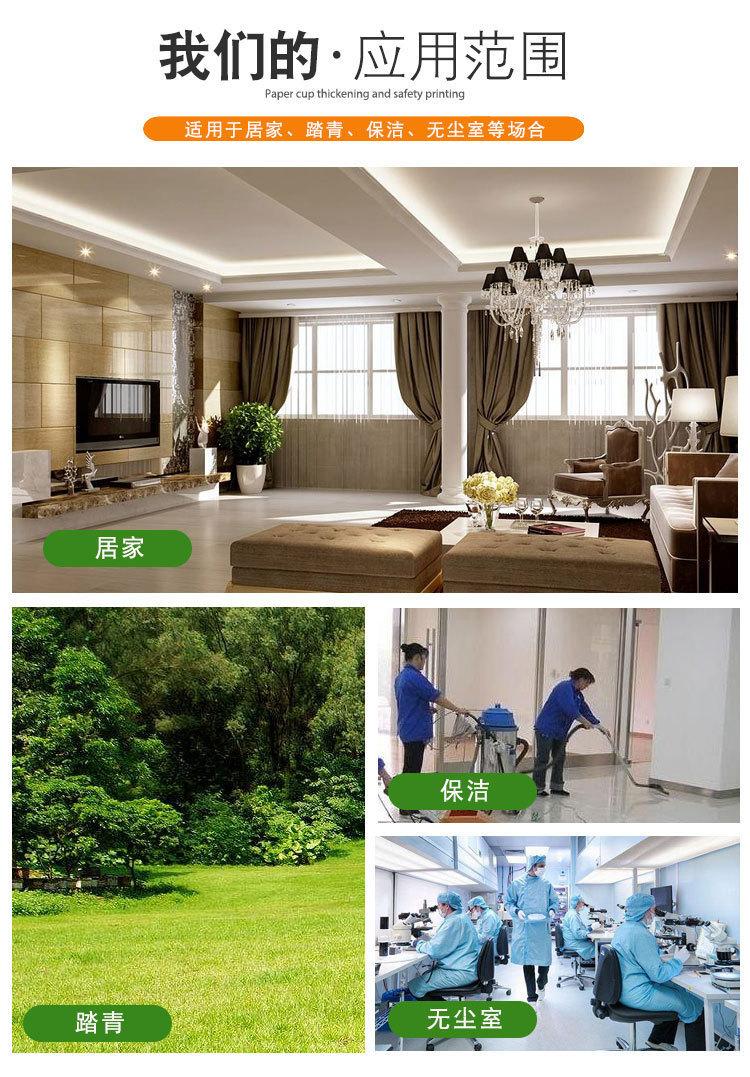
Disposable shoe covers, thickened non-woven fabric shoe covers, home workshop shoe covers, computer room shoe covers, anti slip and rainproof shoe covers
Manufacturer wholesale

Non-woven fabric shoe covers are an essential item in various industries and settings, providing protection for both footwear and floors. These covers are made from non-woven fabric, a material that offers several advantages in terms of durability, breathability, and cost-effectiveness. In this article, we will explore the uses, benefits, and considerations of non-woven fabric shoe covers, as well as their impact on hygiene and safety in different environments.
Uses and Applications
Non-woven fabric shoe covers are widely used in healthcare facilities, laboratories, cleanrooms, and manufacturing plants to prevent the spread of contaminants and maintain a clean working environment. They are also employed in real estate showings, open houses, and construction sites to protect floors from dirt, debris, and moisture brought in on footwear. Additionally, non-woven fabric shoe covers are utilized in food processing facilities, restaurants, and hospitality settings to uphold sanitation standards and prevent cross-contamination.
Benefits of Non-Woven Fabric
Non-woven fabric is a popular choice for shoe covers due to its exceptional properties. It is lightweight, yet durable, providing reliable protection without compromising mobility. The material is also breathable, allowing air circulation to minimize discomfort and moisture buildup. Moreover, non-woven fabric is cost-effective, making it an economical option for businesses that require disposable shoe covers in large quantities.
Hygiene and Safety Considerations
Maintaining hygiene and safety standards is crucial in various industries, and non-woven fabric shoe covers play a significant role in achieving these objectives. By covering footwear, these protective items help prevent the transfer of dirt, bacteria, and other contaminants from one area to another. This is particularly important in healthcare settings and cleanroom environments where sterile conditions are essential. Furthermore, non-woven fabric shoe covers reduce the risk of slip and fall accidents by providing traction on slippery surfaces, thereby enhancing workplace safety.
Environmental Impact
While non-woven fabric shoe covers offer numerous benefits, it is important to consider their environmental impact. As disposable items, they contribute to waste generation, prompting businesses to explore sustainable alternatives or implement proper disposal practices. Some companies may opt for biodegradable or recyclable options to minimize their ecological footprint while maintaining the necessary level of protection.
Choosing the Right Shoe Covers
When selecting non-woven fabric shoe covers for specific applications, it is essential to consider factors such as size, fit, and slip resistance. Different environments may require different levels of protection, so it is important to choose shoe covers that meet the relevant industry standards and regulations. Additionally, businesses should assess the overall cost of using non-woven fabric shoe covers, taking into account factors such as frequency of use, disposal costs, and potential savings from reduced cleaning and maintenance expenses.
Future Developments
As technology and materials continue to advance, the future of non-woven fabric shoe covers may involve innovations that enhance their performance and sustainability. Manufacturers are likely to explore new materials, design features, and production methods to address industry-specific needs and environmental concerns. This may lead to the development of more eco-friendly options or reusable alternatives that offer long-term value while meeting hygiene and safety requirements.
In conclusion, non-woven fabric shoe covers are versatile protective items that serve a vital role in maintaining cleanliness, hygiene, and safety across various industries. Their lightweight yet durable nature, coupled with cost-effectiveness and breathability, makes them a practical choice for businesses seeking reliable footwear protection. As businesses continue to prioritize hygiene and environmental responsibility, the demand for innovative and sustainable solutions in the realm of non-woven fabric shoe covers is expected to grow. By staying informed about industry developments and best practices, businesses can make informed decisions regarding the use of non-woven fabric shoe covers to meet their specific needs while upholding high standards of hygiene and safety.


Non-woven fabric shoe covers are an essential item for maintaining cleanliness and hygiene in various environments, including medical facilities, clean rooms, laboratories, and households. These disposable covers provide a cost-effective and convenient solution for preventing the spread of dirt, dust, and contaminants from shoes to floors and surfaces.
Non-woven fabric, often made from polypropylene, is a popular material for shoe covers due to its lightweight, breathable, and durable properties. The non-woven construction creates a barrier against liquids and particles while allowing air to circulate, keeping the wearer comfortable during extended use.
One of the key advantages of non-woven fabric shoe covers is their disposable nature. Once used, they can be easily discarded, eliminating the need for laundering and maintenance. This not only saves time and effort but also reduces the risk of cross-contamination.
In medical and healthcare settings, non-woven fabric shoe covers play a crucial role in infection control. They help prevent the transfer of pathogens and microorganisms from one area to another, reducing the risk of healthcare-associated infections. By covering shoes, healthcare workers can maintain a clean environment and protect both patients and themselves.
Clean rooms and laboratories also benefit from the use of non-woven fabric shoe covers to minimize the introduction of foreign particles and maintain sterile conditions. In these sensitive environments, where even the smallest contaminants can compromise experiments or production processes, disposable shoe covers are an essential part of the overall contamination control strategy.
For businesses and facilities with strict cleanliness requirements, non-woven fabric shoe covers offer a simple yet effective solution for maintaining a tidy and professional environment. Whether it’s a real estate open house, a food processing facility, or a data center, these covers help uphold cleanliness standards and protect floors from dirt and damage.
In households, non-woven fabric shoe covers are useful for preventing outdoor dirt and grime from being tracked indoors. They are particularly handy when moving furniture or appliances, hosting gatherings, or during home improvement projects. By slipping on a pair of disposable shoe covers, homeowners can keep their floors clean without having to enforce a no-shoes policy.
When selecting non-woven fabric shoe covers, it’s important to consider factors such as size, grip, and resistance to fluids. Ensuring a proper fit is essential for comfort and safety, while a non-slip sole provides traction on various surfaces. Additionally, water-resistant or waterproof shoe covers are suitable for environments where spills or moisture are a concern.
Overall, non-woven fabric shoe covers offer a practical and hygienic solution for various industries and applications. Their disposable nature, combined with the protective properties of non-woven fabric, makes them an indispensable item for maintaining cleanliness and reducing the risk of contamination. Whether in healthcare facilities, clean rooms, or everyday settings, these covers play a vital role in upholding hygiene standards and promoting a clean and safe environment.
